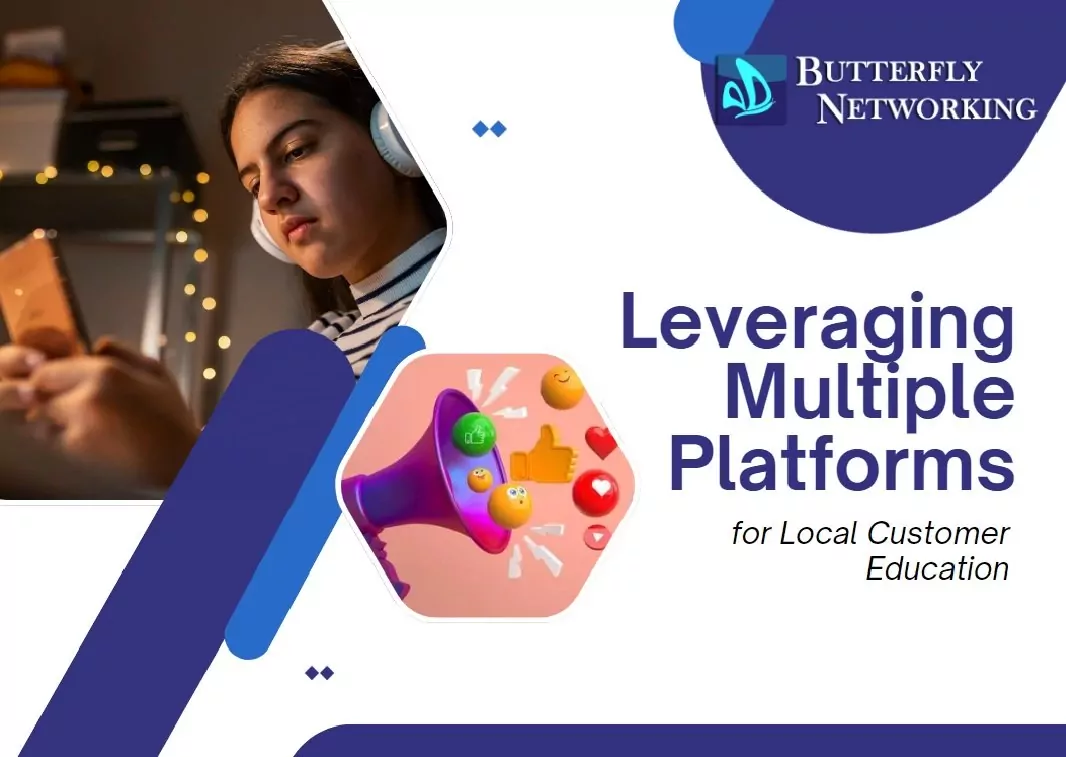Leveraging Multiple Platforms for
Local Customer Education

Section 1:
Understanding Modern Customer Education Landscape

In today's hyper-connected world, local businesses face a critical challenge: how to effectively educate customers across multiple platforms. Gone are the days when a single marketing channel could reach your entire audience. Metro Vancouver's dynamic business ecosystem demands a multi-faceted approach to customer education that combines digital innovation with traditional communication strategies.
The modern customer is sophisticated, information-hungry, and platform-agnostic. They consume content through smartphones, social media, local publications, community events, and word-of-mouth networks. Successful businesses recognize that education is no longer about broadcasting a message but creating meaningful, valuable interactions that build trust and demonstrate expertise.
By strategically leveraging diverse platforms, local businesses can transform customer education from a passive communication tool into an active engagement mechanism. This approach not only builds brand credibility but also creates a compelling narrative that sets you apart in a competitive market.
Section 2:
Digital Platforms - The New Educational Frontier

Digital platforms have revolutionized how businesses communicate with their customers. Social media, blogs, podcasts, webinars, and email marketing offer unprecedented opportunities for targeted, interactive customer education. Each platform presents unique advantages that, when strategically combined, can create a powerful educational ecosystem.
LinkedIn provides professional networking and thought leadership opportunities. Instagram offers visually compelling storytelling. YouTube enables in-depth tutorial content. Podcasts deliver convenient, on-the-go learning experiences. The key is not to be everywhere but to be strategic and authentic in your chosen platforms.
Local businesses in Metro Vancouver can particularly benefit from geo-targeted digital advertising and location-based content marketing. Platforms like Facebook and Google Ads allow precise audience segmentation, ensuring your educational content reaches those most likely to engage with your brand.
Consider creating a content calendar that balances different types of educational material: how-to guides, industry insights, client success stories, and interactive Q&A sessions. This diversity keeps your audience engaged and positions your business as a knowledgeable, approachable resource.
Section 3:
Traditional Media's Continuing Educational Power

While digital platforms dominate modern communication, traditional media remains a powerful educational tool for local businesses. Community newspapers, local radio, networking events, and printed materials still play a crucial role in reaching diverse audience segments, particularly those less comfortable with digital platforms.
Metro Vancouver's rich multicultural landscape means that traditional media can be particularly effective in reaching demographic groups with varying digital literacy levels. A comprehensive customer education strategy should integrate both digital and traditional channels to maximize reach and impact.
Workshops, seminars, and community presentations offer invaluable opportunities for direct interaction and deep educational experiences. These formats allow businesses to showcase expertise, build personal connections, and create memorable learning moments that digital platforms cannot fully replicate.
Consider partnering with local organizations, sponsoring community events, or hosting educational seminars that provide genuine value to your target audience. These initiatives not only educate customers but also significantly enhance your brand's local reputation and credibility.
Section 4:
Measuring Educational Marketing Impact

Effective customer education requires more than just creating content—it demands rigorous measurement and continuous optimization. Businesses must develop robust analytics frameworks to track engagement, understand content performance, and refine their educational strategies.
Key performance indicators (KPIs) should extend beyond simple vanity metrics. Look for meaningful signals like content sharing rates, time spent engaging with educational materials, lead generation, and tangible business outcomes such as increased inquiries or conversions.
Digital tools like Google Analytics, social media insights, and email marketing platforms provide comprehensive data to help businesses understand the effectiveness of their educational content. Heat maps, user journey tracking, and conversion funnel analysis offer granular insights into how customers interact with your educational materials.
Remember that measurement is an ongoing process. Regularly review your metrics, solicit direct feedback from your audience, and be prepared to pivot your strategy based on data-driven insights.
Section 5:
Metro Vancouver's Unique Educational Marketing Landscape

Metro Vancouver presents a unique ecosystem for customer education, characterized by its diverse population, innovative business culture, and technology-forward environment. Local businesses can leverage this distinctive landscape by developing hyper-localized, culturally sensitive educational strategies.
Understanding the region's demographic nuances—including its significant multicultural communities, tech-savvy workforce, and environmental consciousness—allows businesses to create more resonant, impactful educational content.
Collaboration becomes a powerful tool. By networking with local business associations, participating in community initiatives, and cross-promoting with complementary businesses, you can expand your educational reach and create a more interconnected local business community.
The most successful educational marketing strategies will be those that authentically reflect Metro Vancouver's values: innovation, inclusivity, and continuous learning.
Conclusion
Effective customer education is no longer optional—it's a strategic imperative for local businesses. By thoughtfully leveraging multiple platforms, measuring impact, and staying true to your local context, you can transform education from a marketing tactic into a powerful business growth engine.
Need assistance, have questions - we are here to help. Book a call today - http://www.askCarla.ca/BookACall
